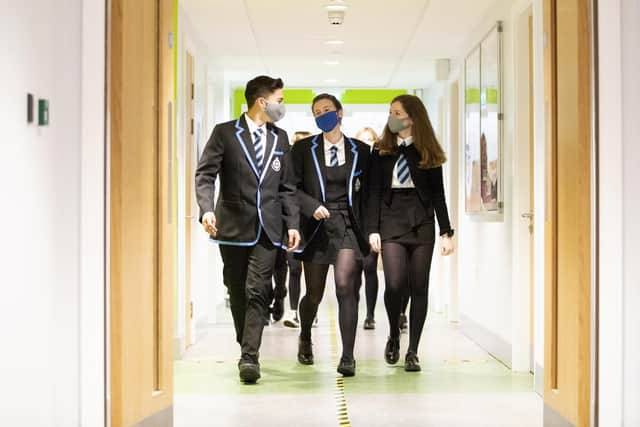Scotland exams: EIS says it would have been ‘big political decision’ to scrap S4 assessments during Covid pandemic
Speaking to the Scottish Parliament’s education committee, Larry Flanaghan of the EIS said that the union had held discussions with the Scottish Government over cancelling assessments for S4s, the vast majority of whom were likely to continue at school in S5 – and put different arrangements in place for the few planning to leave school after that year.
He said the process, which was rejected by the government, would have allowed pupils to focus on learning and removed a burden of assessment from education staff, but claimed that the decisions were rejected after being made ahead of the Holyrood elections in May.
Advertisement
Hide AdAdvertisement
Hide AdHe said: "It was a big political decision and they clearly had a view that they wanted to certificate all pupils, as far as possible in the normal manner.”


He added: "All of the political parties viewed what was happening in schools through a political prism, with a view to the elections. I think the politics around what was happening in schools was unhelpful to schools.”
Mr Flanaghan said: "We argued for this year that if the government reverted to the exam diet, we would have targeted this year’s S4 on a two year pathway to qualifications in S5. That would have allowed more time for the consolidation of learning, particularly given the challenges they have faced.”
The unions also warned that students had a gap in their learning due to the pandemic.
Mr Flanaghan said: “I think there is a challenge there, because there’s an element whereby qualifications are a passport to the next step, but there’s a certain point where if the qualifications are based on reduced content, that you don’t have the skills that the qualification should represent - then that creates a challenge. There will be young people who get the qualifications and move on to the next step, but actually haven’t consolidated their skills.”
Audrey May of the Association of Directors of Education in Scotland, agreed.
She said: “When our young people did return to school, we didn't use the language of catching up and putting extra pressure on them, we were very much concerned about the welfare because of the impact of their of their experience of a pandemic.
"So it was very much a health and well being and welfare approach that we took to the return, so we haven't focused on [the issue of] ‘well you've got a huge gap in your knowledge’. I think we need to say that out loud that that's actually the case. We do need to think about what does that mean going forward.”
Advertisement
Hide AdAdvertisement
Hide AdTara Lillis of teaching union NASUWT, said that the focus on managing assessments during the pandemic had distracted from learning.
She said: "It’s about the question as to what the purpose of education is in the first place. It’s to instil in individuals a love of learning that they can take with them in their lives and their careers and I think some of the evidence the committee has heard today shows the stresses and strains that has been placed on fostering and embedding that love of learning in the system.”
A message from the Editor:
Thank you for reading this article. We're more reliant on your support than ever as the shift in consumer habits brought about by Coronavirus impacts our advertisers.
If you haven't already, please consider supporting our trusted, fact-checked journalism by taking out a digital subscription.
Comments
Want to join the conversation? Please or to comment on this article.
